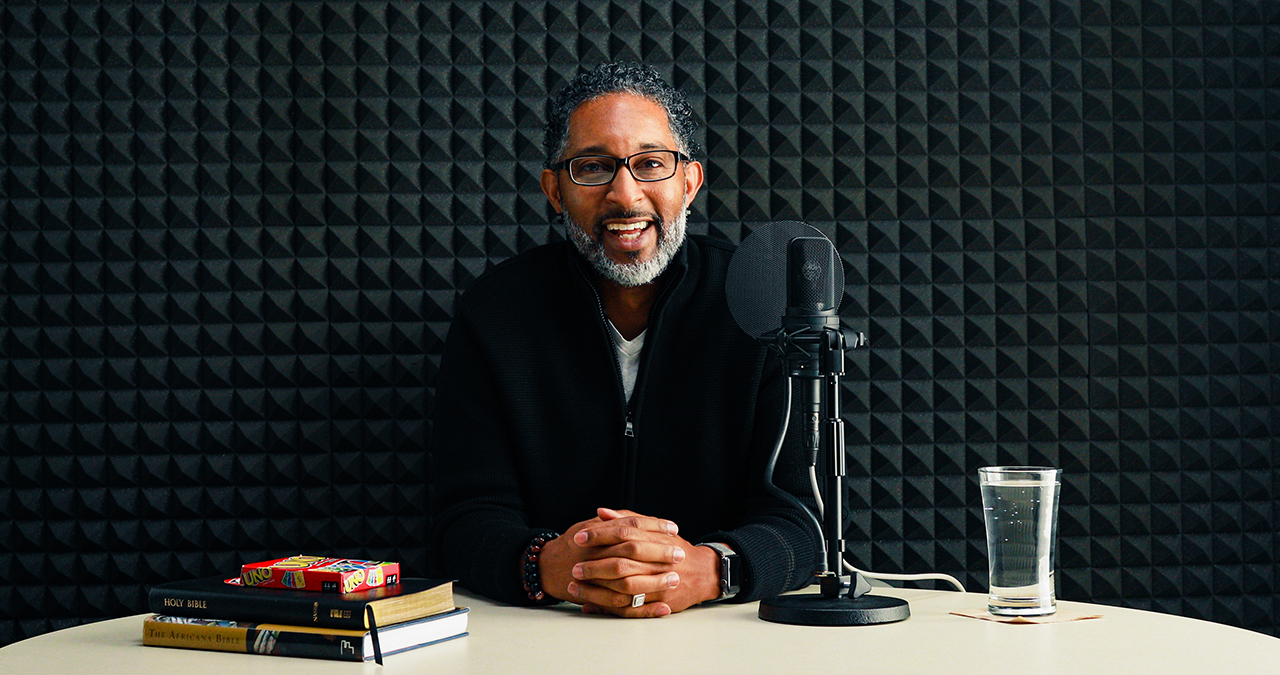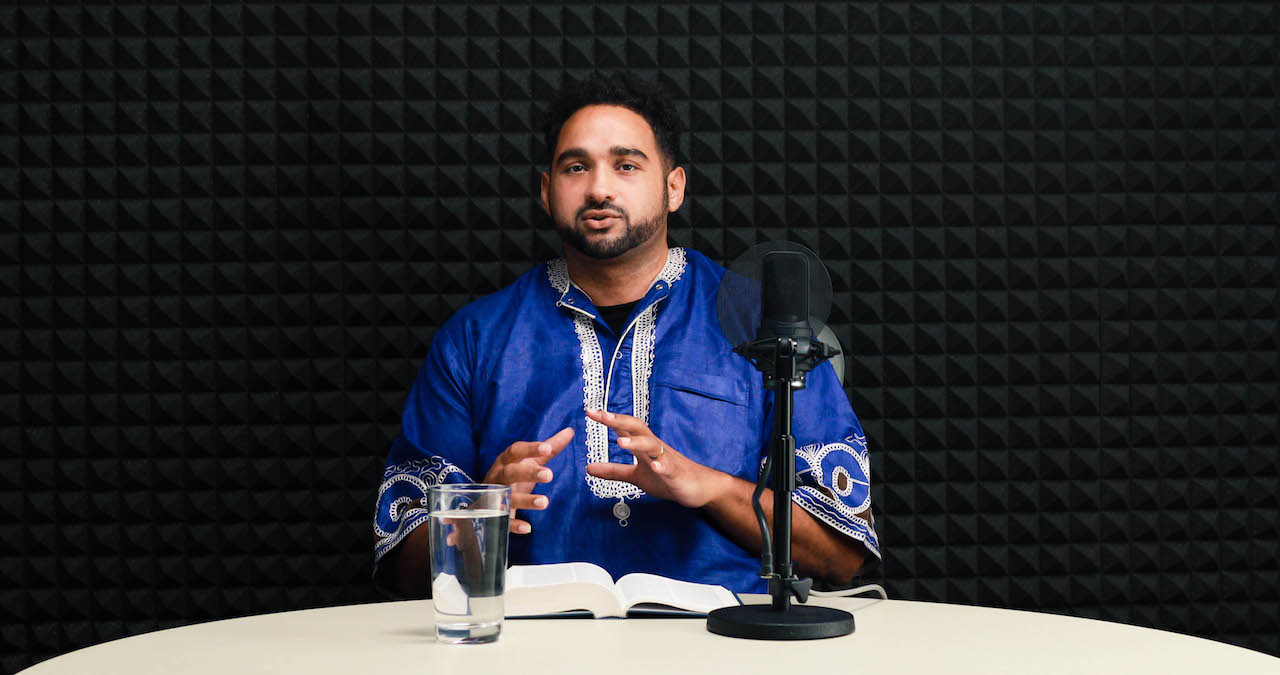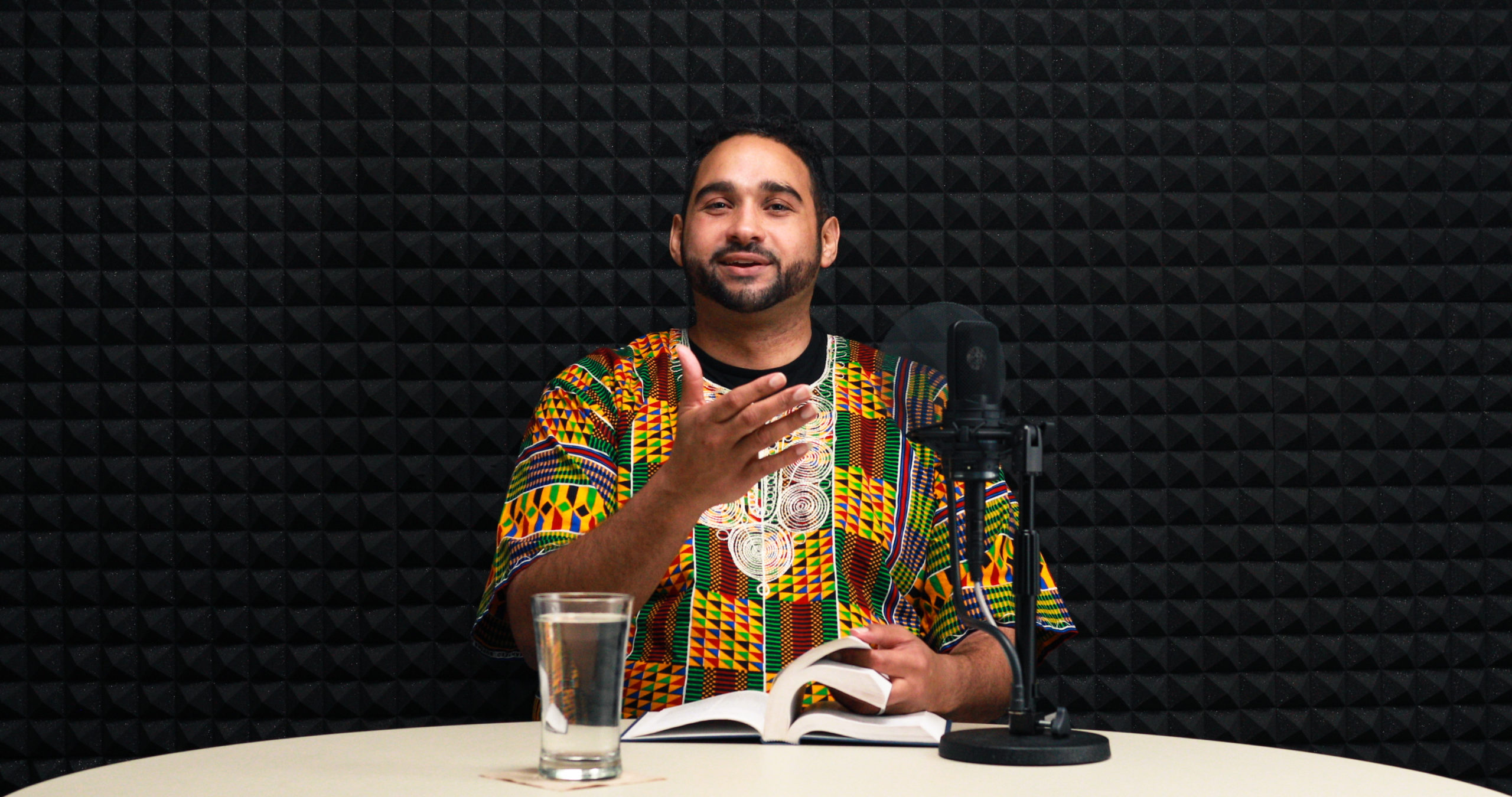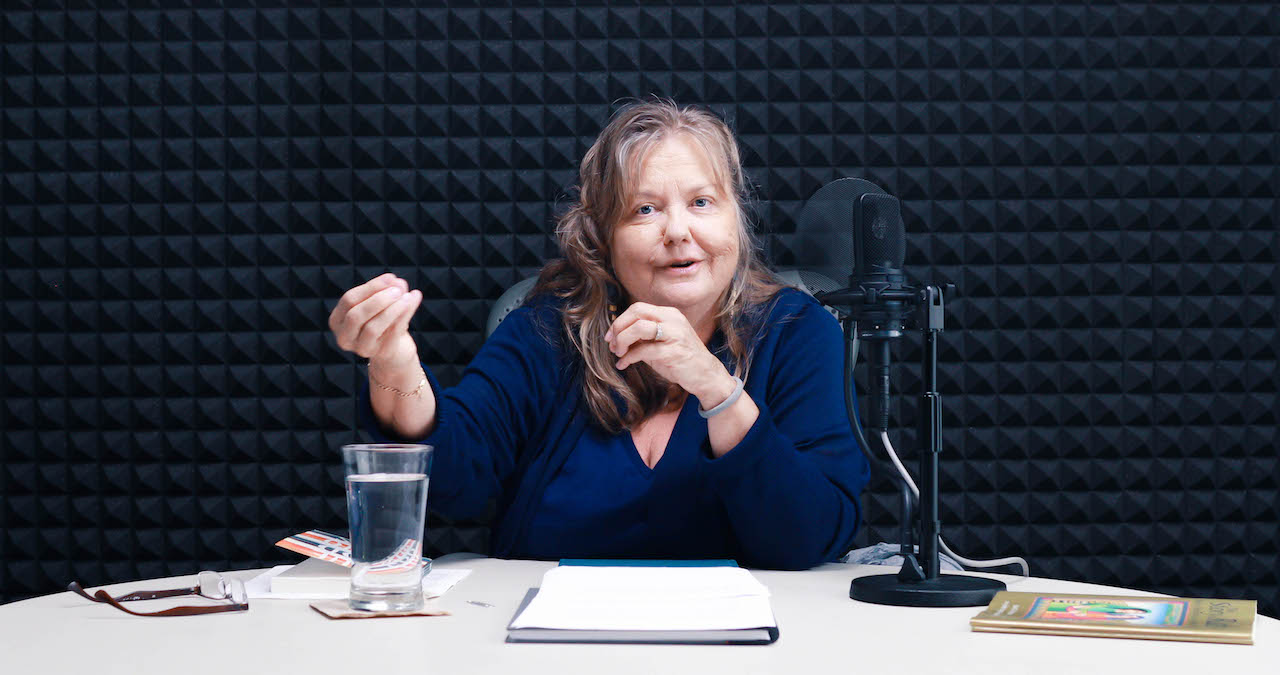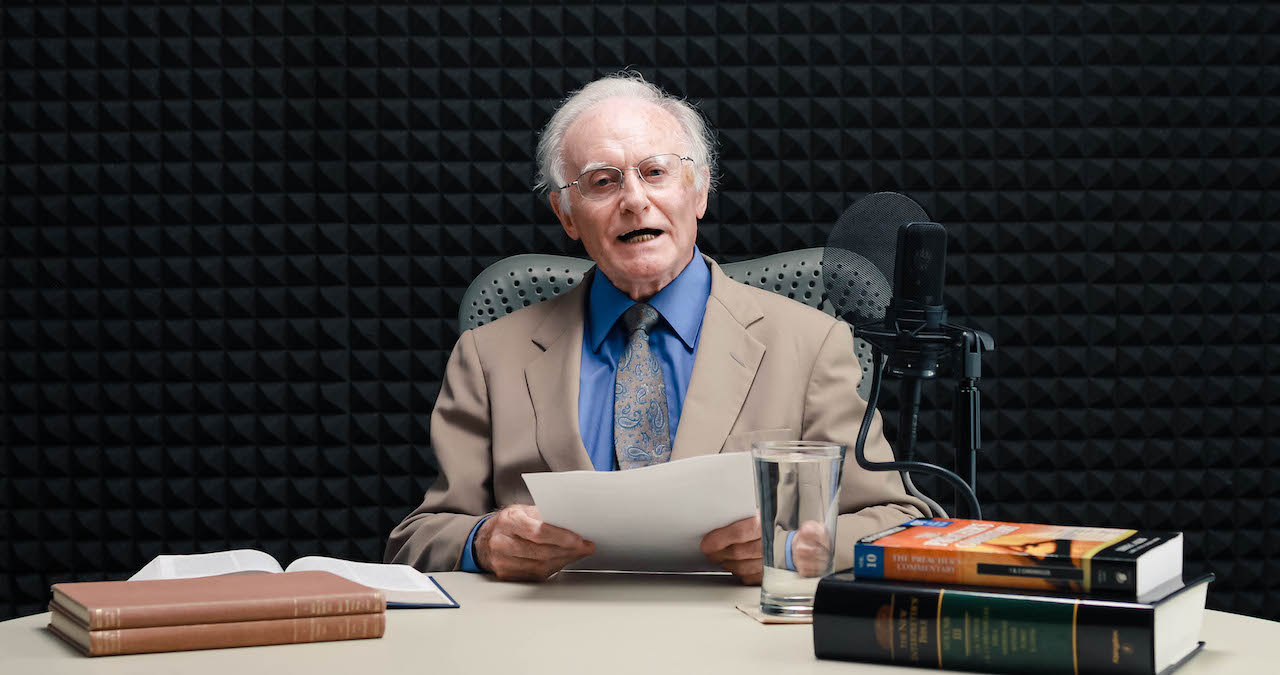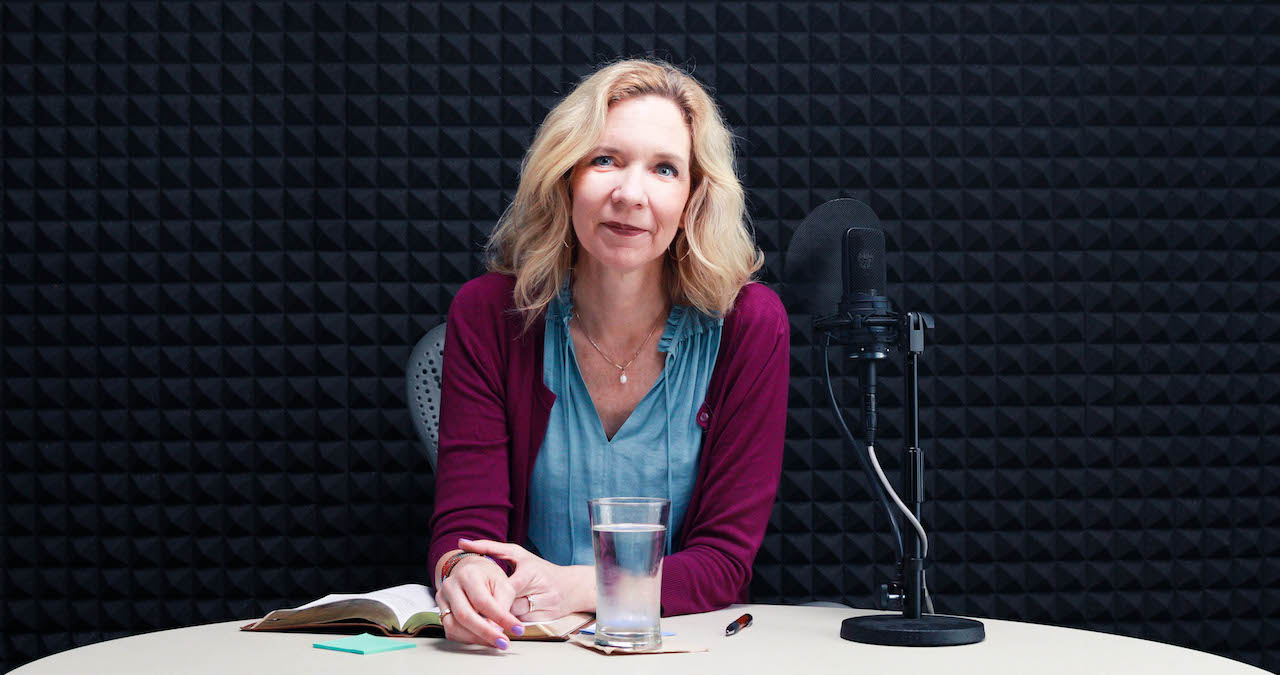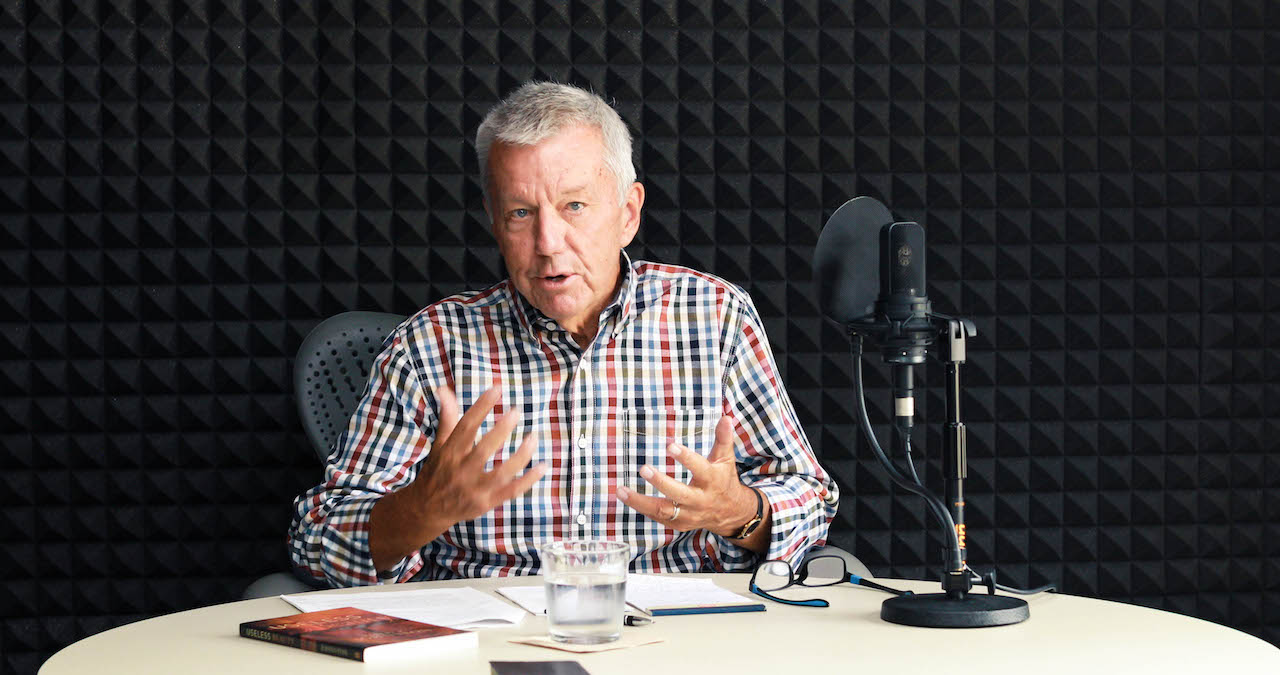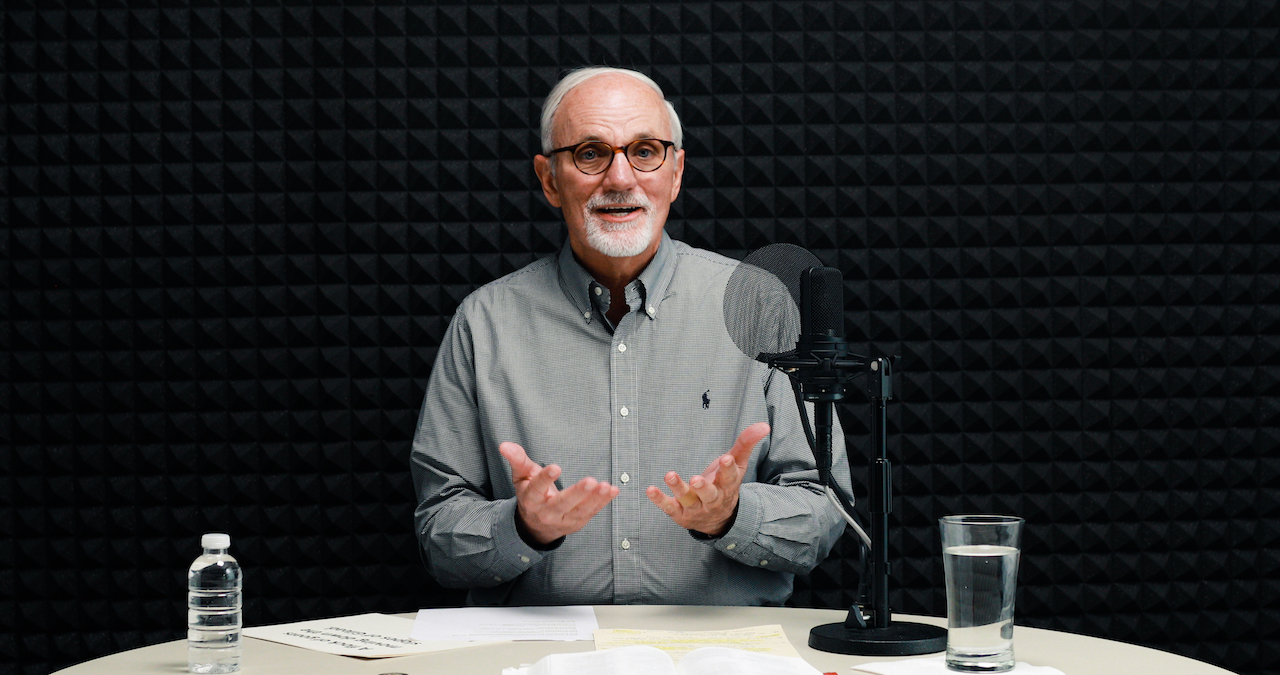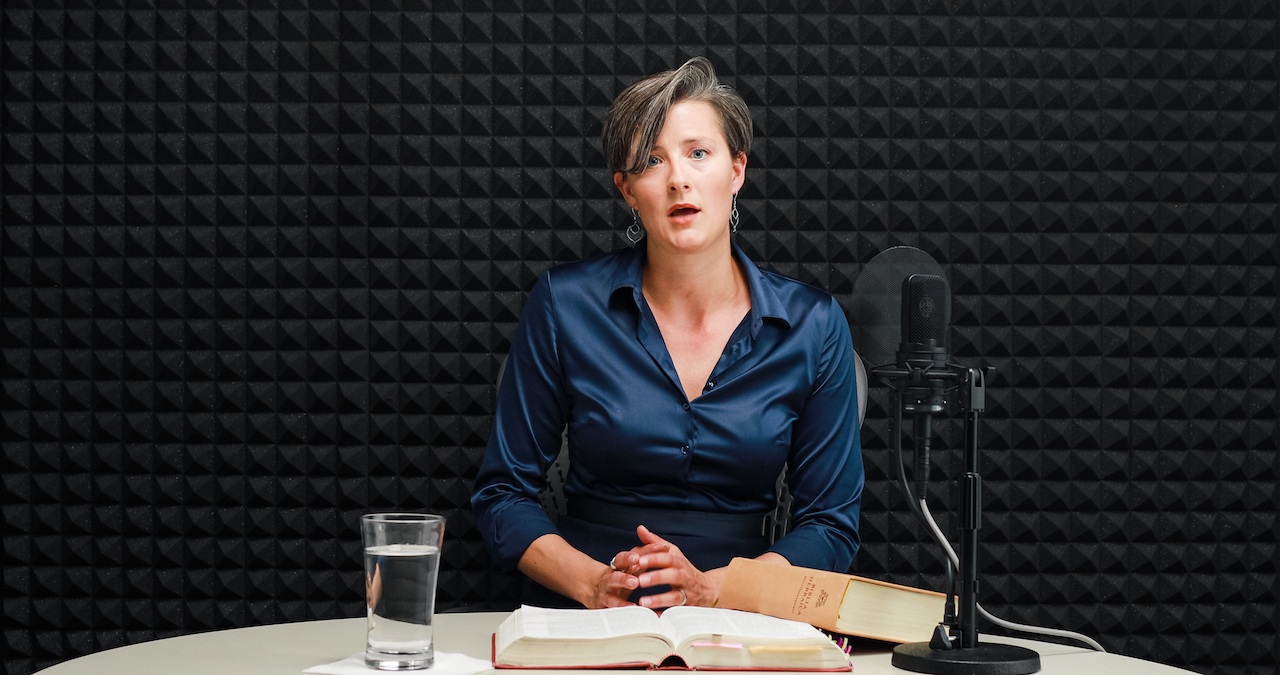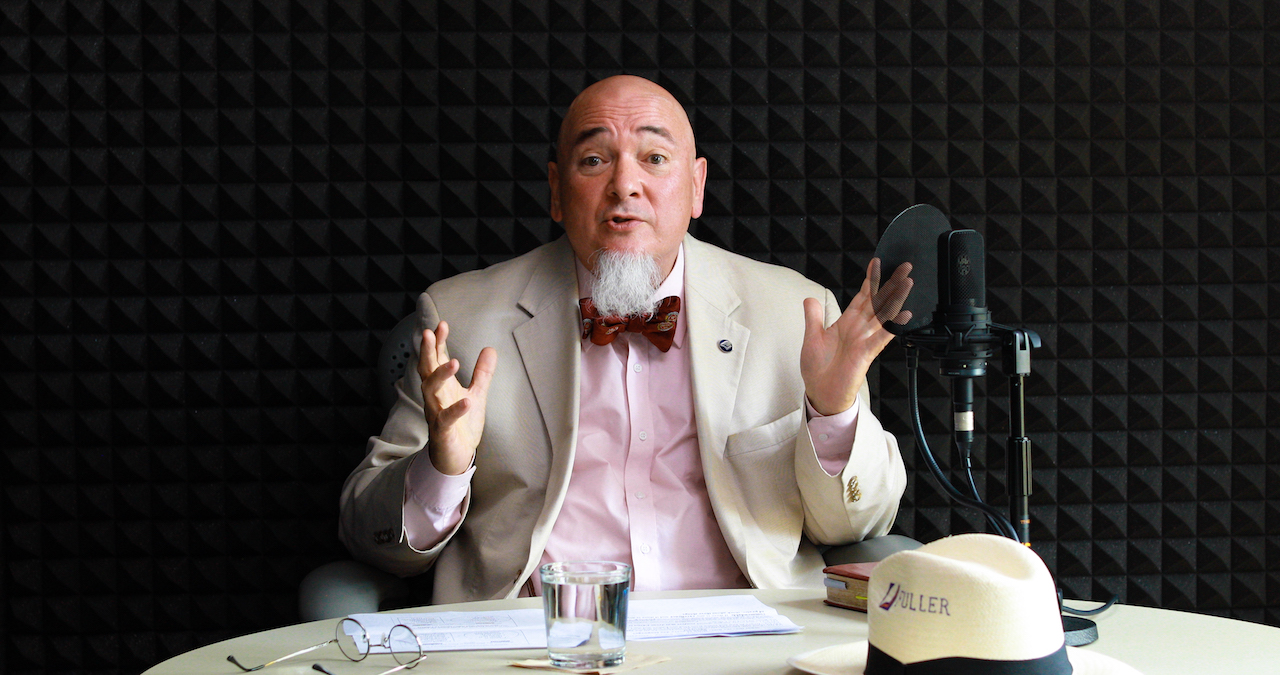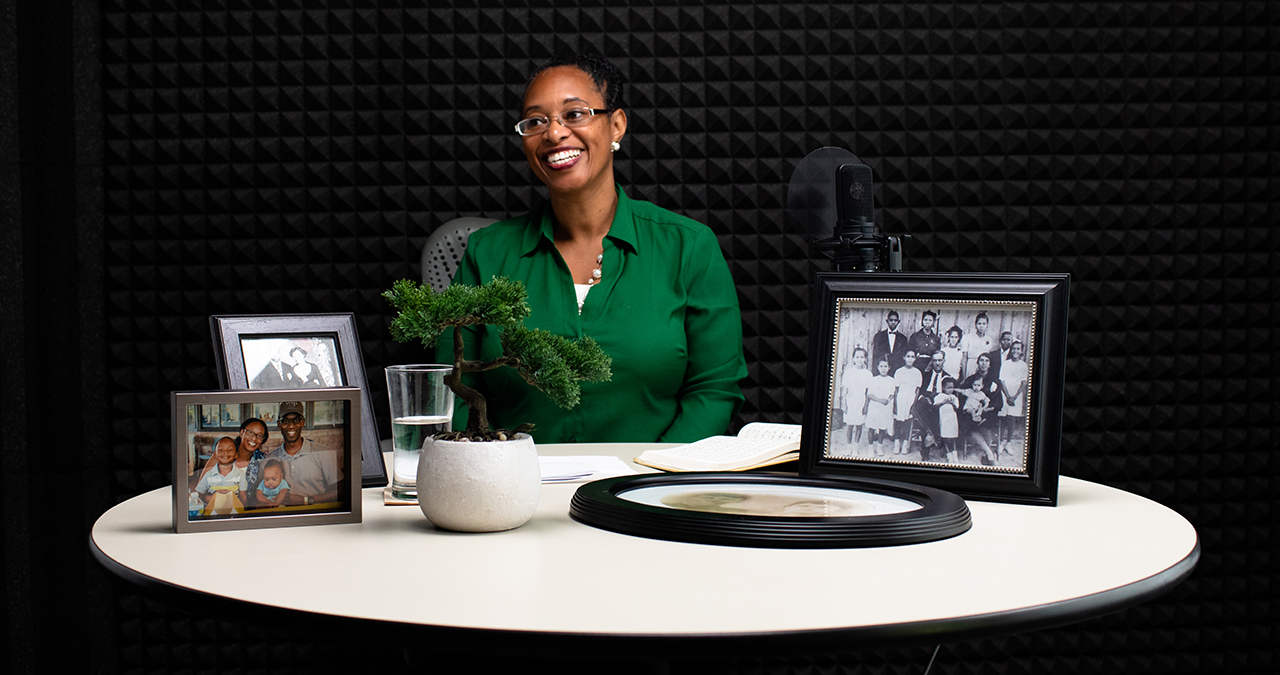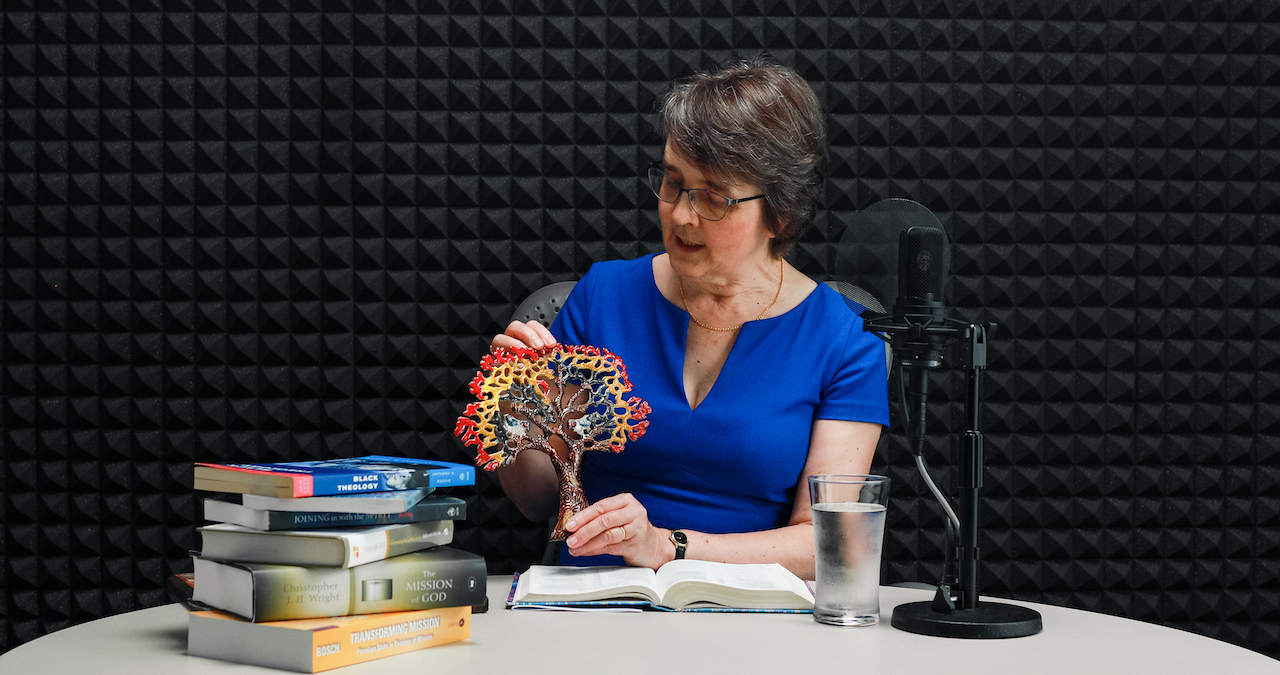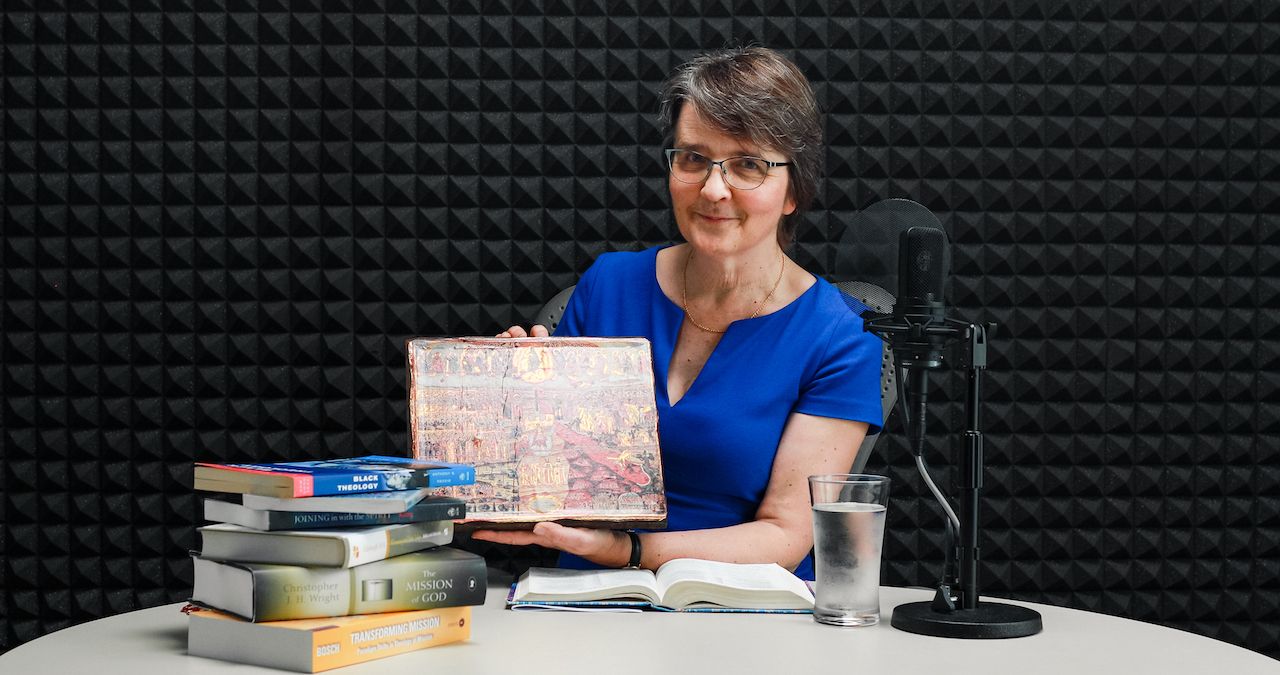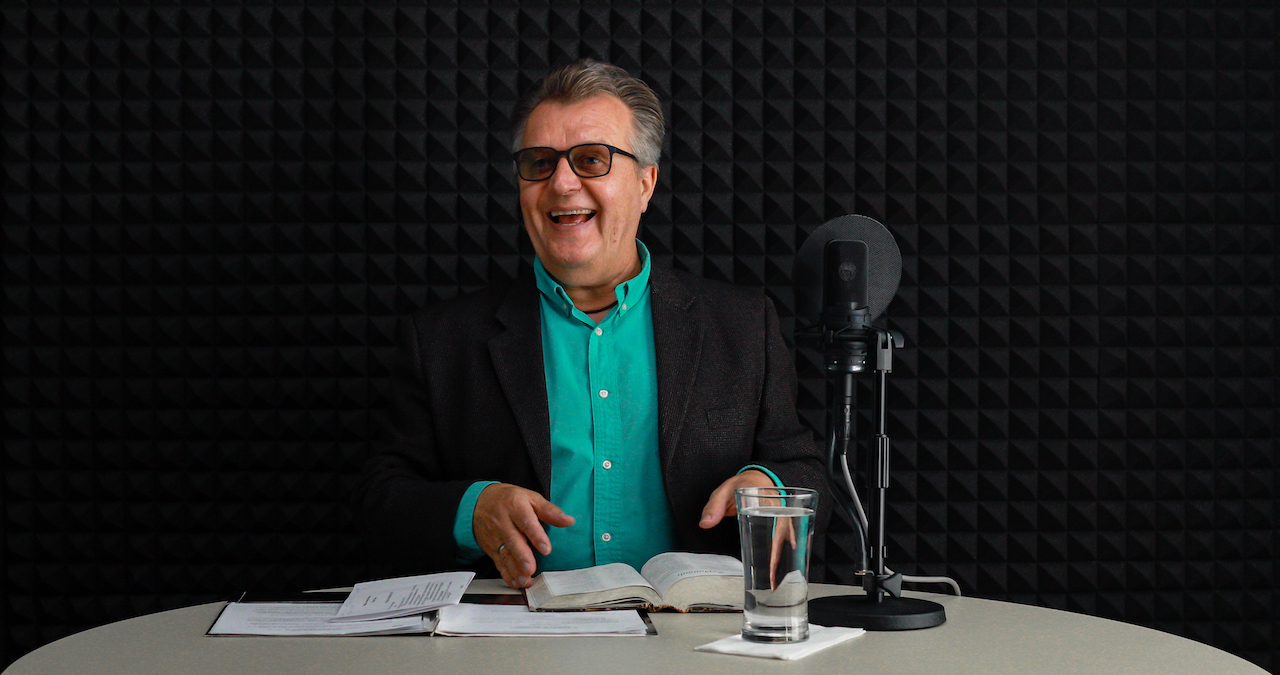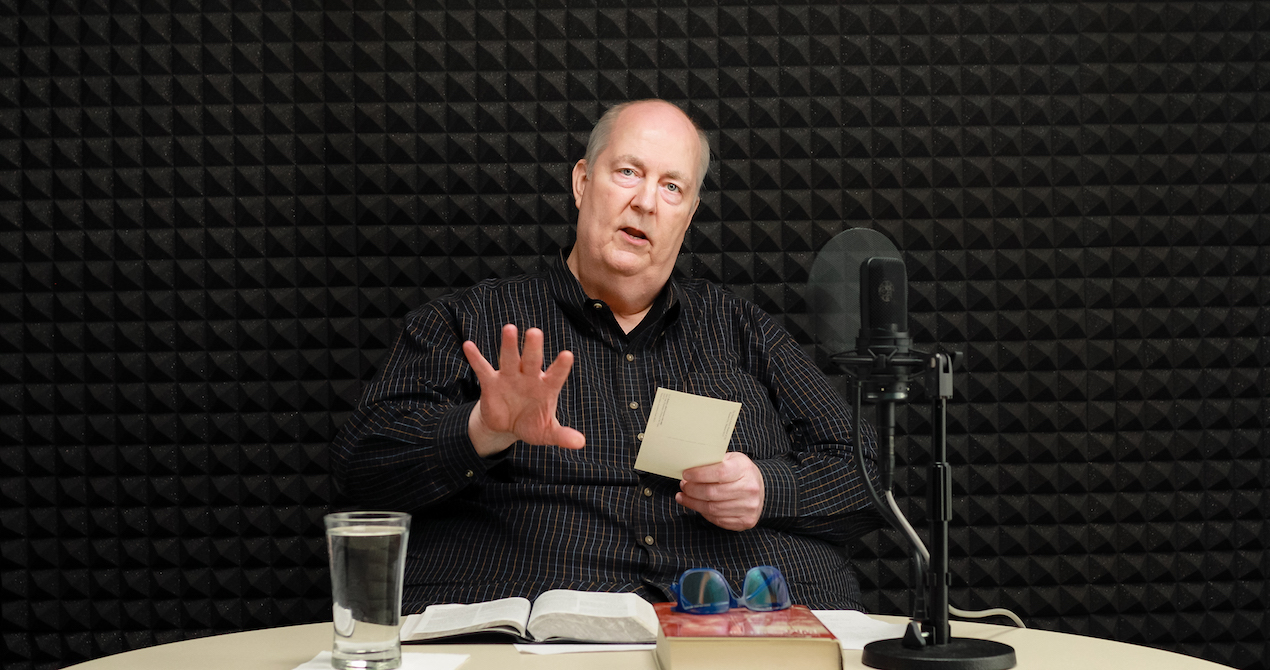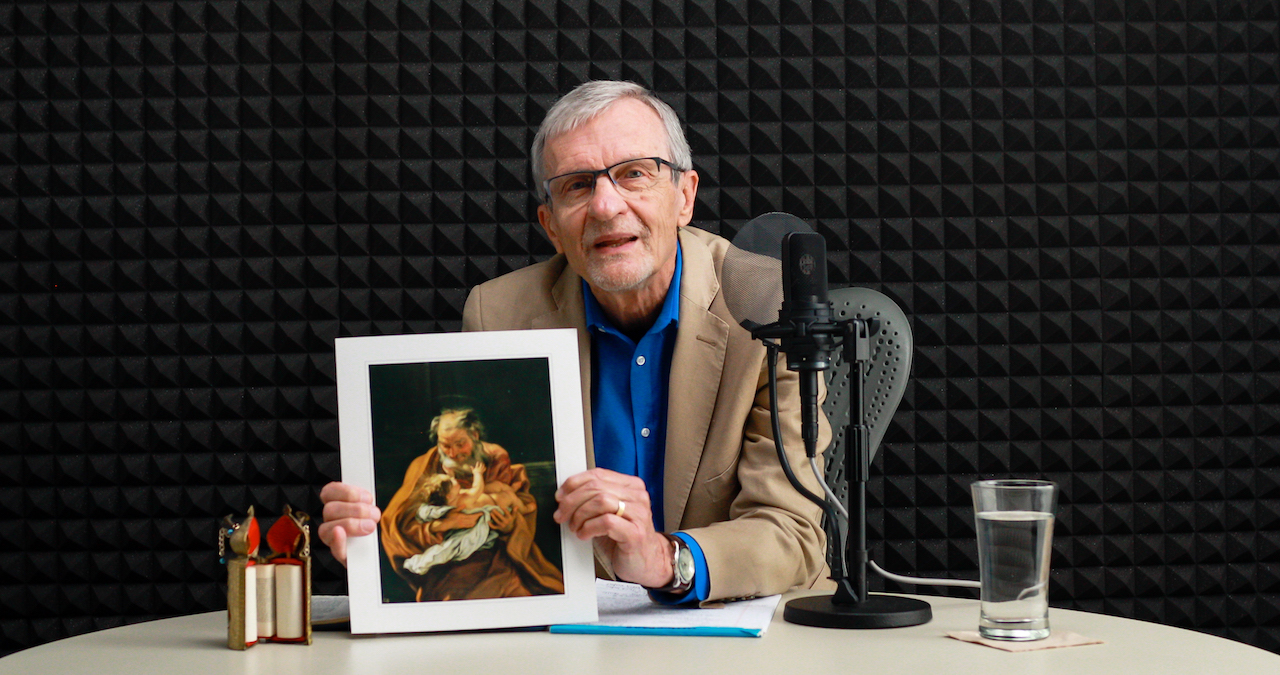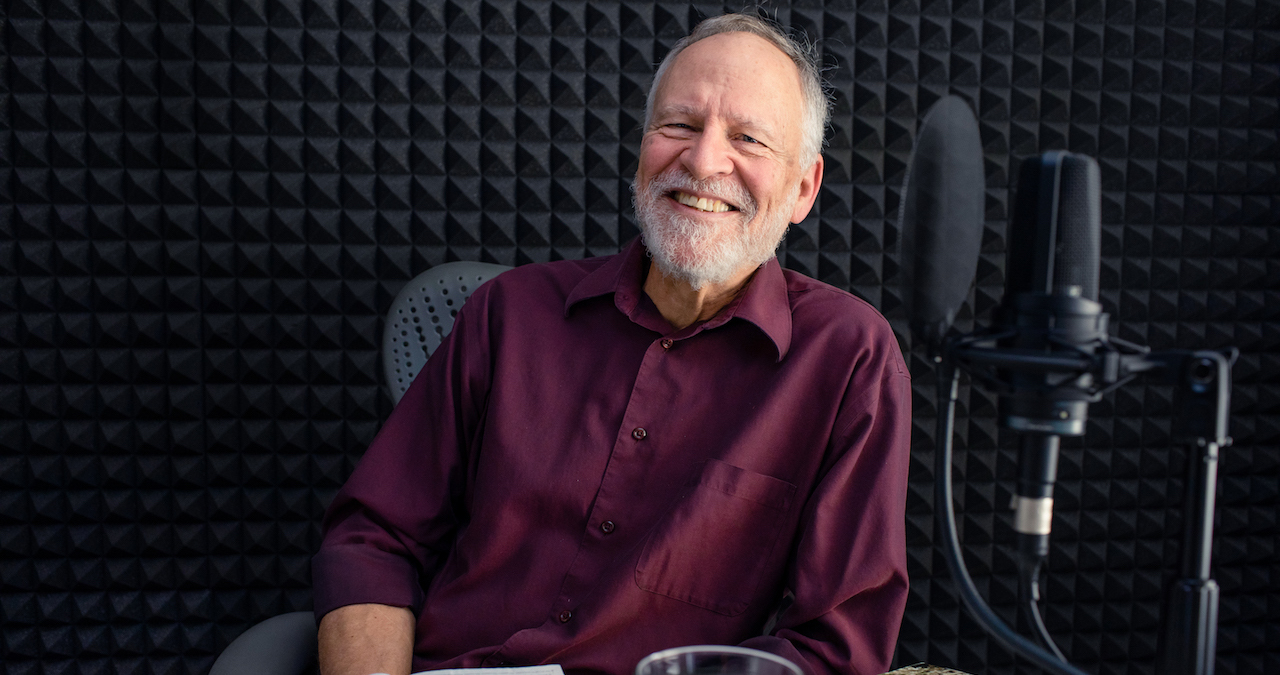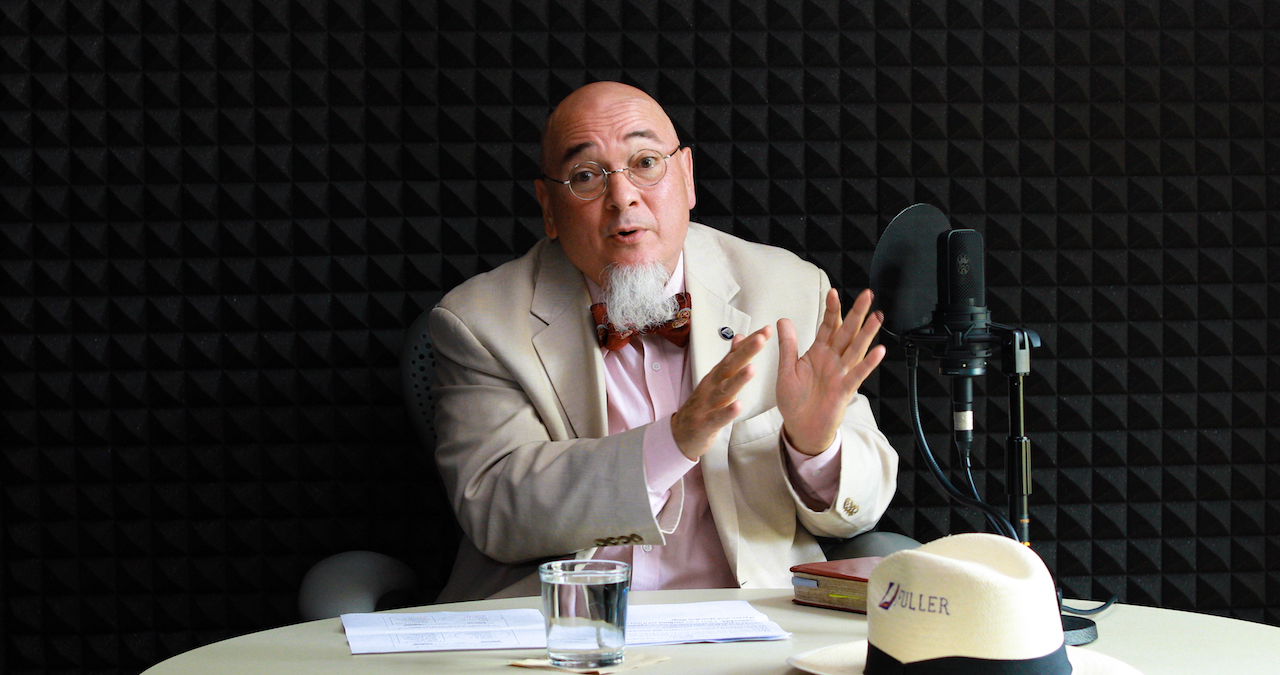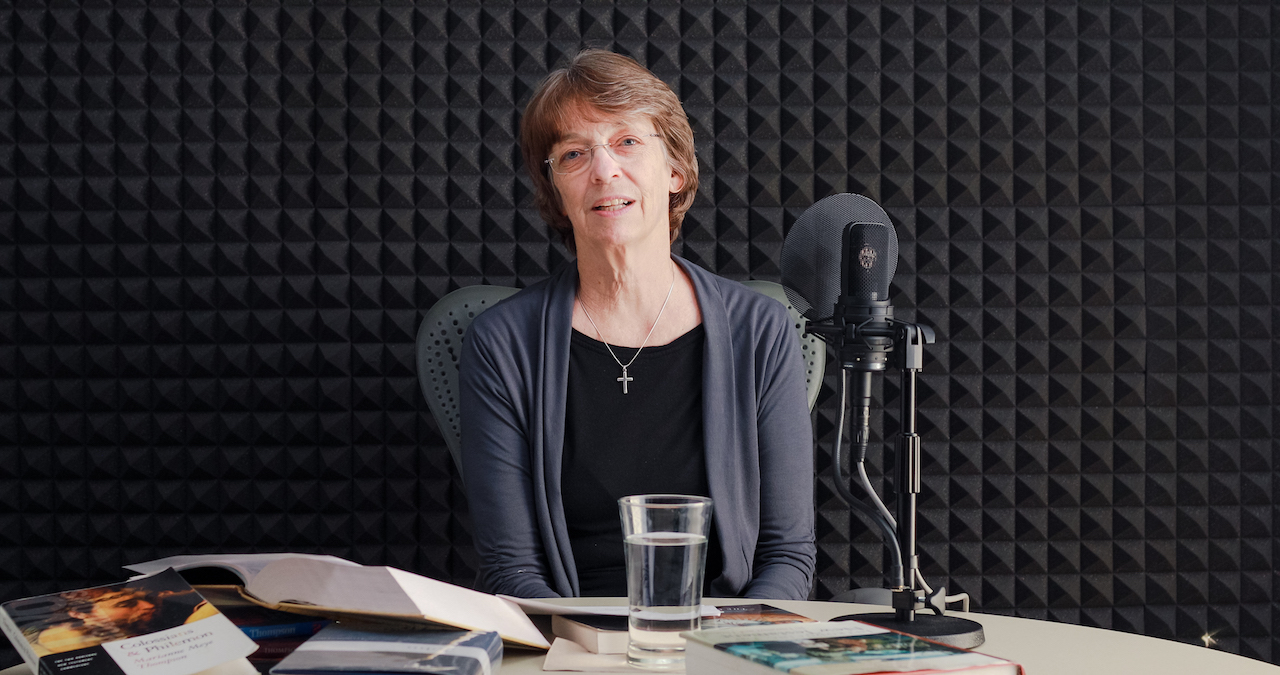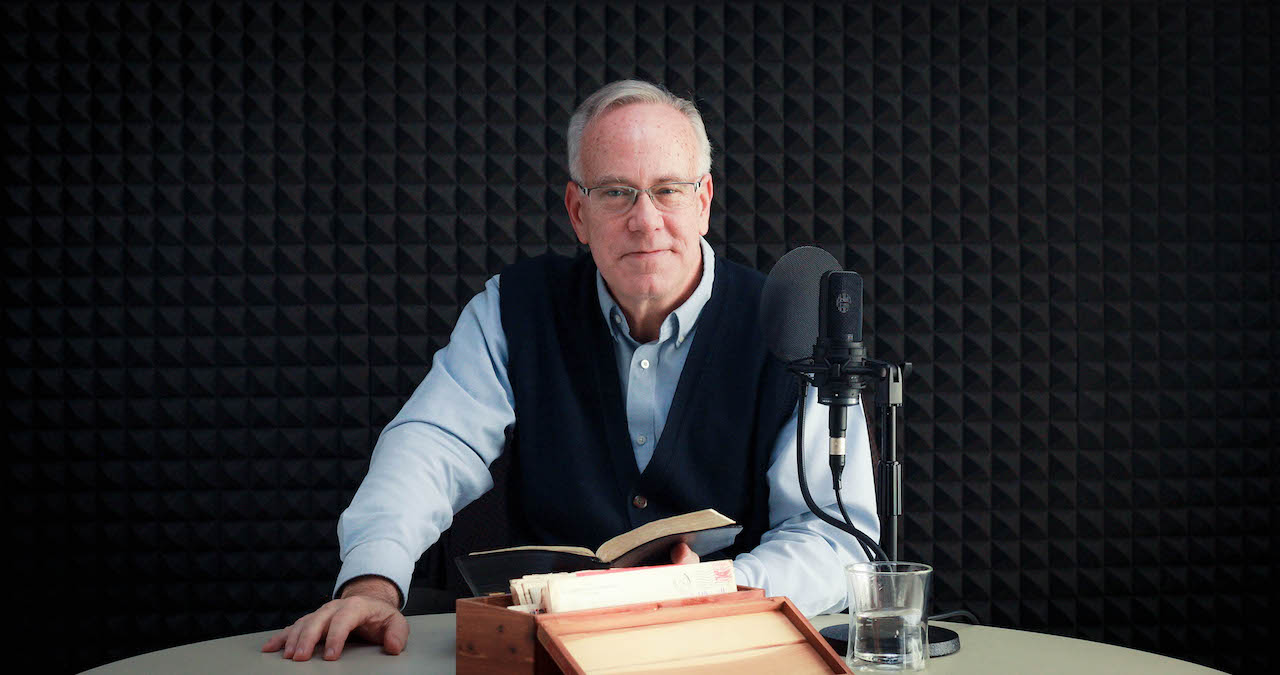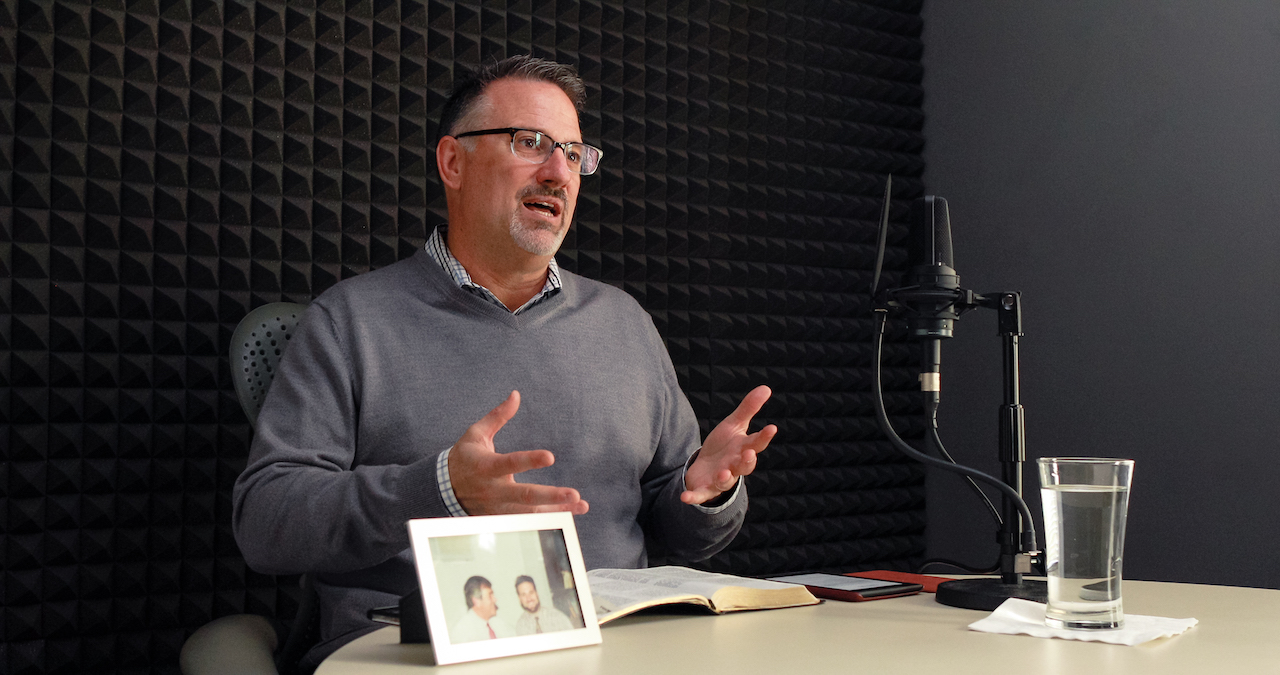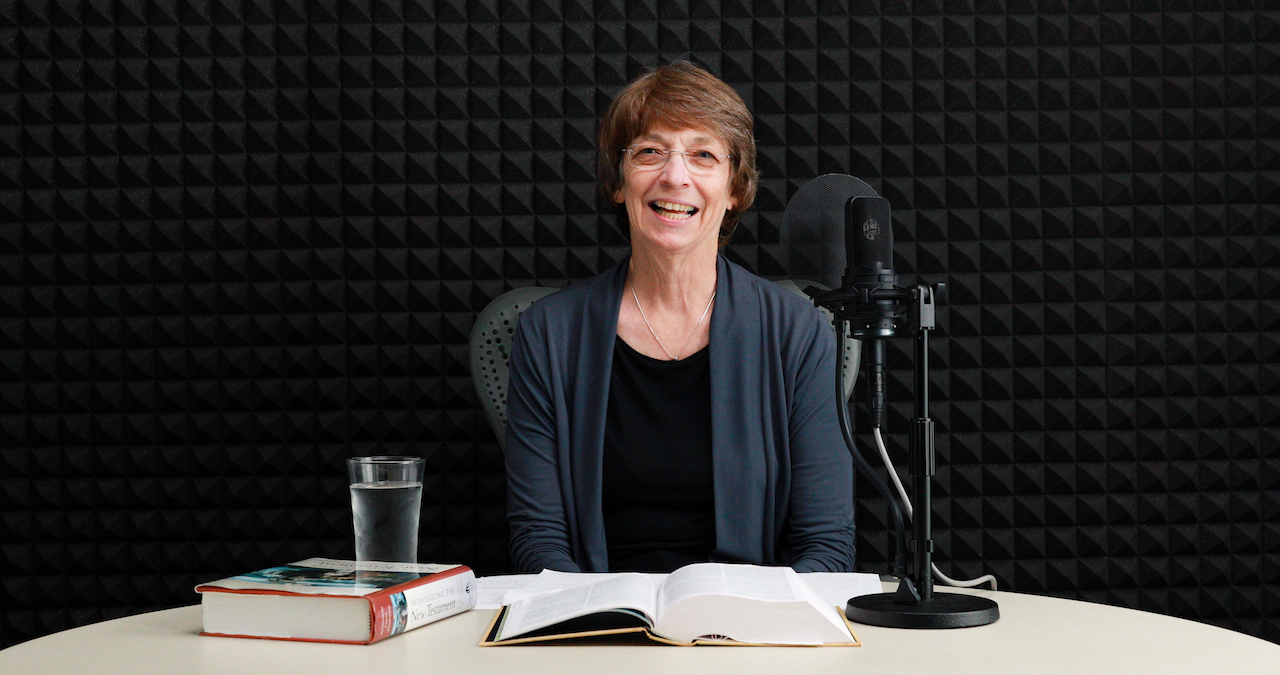
Part of the Communal Reading of Scripture project, Introductions to the Books of the Bible is a new video series featuring more than 40 Fuller Seminary faculty presenting the Bible from their various areas of expertise. These refreshed perspectives on the Scriptures from the fields of theology, psychology, and intercultural studies are presented by FULLER studio in partnership with the Grace & Mercy Foundation.

Part of the Communal Reading of Scripture project, Introductions to the Books of the Bible is a new video series featuring more than 40 Fuller Seminary faculty presenting the Bible from their various areas of expertise. These refreshed perspectives on the Scriptures from the fields of theology, psychology, and intercultural studies are presented by FULLER studio in partnership with the Grace & Mercy Foundation.

Featured
Introduction to Matthew with Tommy Givens
Dr. Tommy Givens introduces Matthew by emphasizing Jesus’ commitment to minister in local and everyday contexts.
Featured
Dr. Dwight Radcliff introduces Amos and Obadiah, deeply human books that speak strong words about coming judgement while also emphasizing God’s care and concern for all people.

Dr. Oscar García-Johnson introduces Genesis, which testifies to God as the giver of all life and to God’s unified vision for all creation.
Dr. Dwight Radcliff introduces Exodus and its themes of God’s glory and supremacy, which appear in the narrative time and time again.
Dr. Vince Bantu introduces Numbers, reflecting on what it means for God’s people to journey with God through the wilderness between the Exodus and the Promised Land.
Dr. Lisa Lamb introduces Deuteronomy, a book about the values that are meant to shape the identity of God’s people.

Dr. Vince Bantu introduces Joshua, reflecting on God’s promises and on how God’s people find both strength and rest in him.
Dr. Todd Johnson introduces Judges, dwelling on God’s faithfulness in restoring his people time and time again despite their continual cycles of sin.
Dr. Jude Tiersma Watson introduces Ruth, the story of a foreigner that teaches of the blessings that come from being in relationship with the other.
Dr. Kutter Callaway introduces 1 and 2 Samuel, considering their message about the spiritual tone-deafness of God’s people and the need for new ears to listen to and respond to God faithfully.
Dr. Scott Cormode introduces 1 and 2 Kings with a particular focus on what the women in these narratives can teach us about God—when we’ve corrected the ways they’ve been traditionally misinterpreted.
Dr. Leslie Allen introduces 1 and 2 Chronicles, highlighting the Chronicler’s desire that God’s people return to a united and faithful worship of the Lord.
Dr. Kyong-Jin Lee introduces Ezra and Nehemiah by explaining the historical context of God’s people’s return to Jerusalem from exile, and the work they undertake to reinstitute their relationship with God.
Dr. Alexis Abernethy introduces Esther, highlighting the many ways that Esther exemplifies the qualities of a good and inspirational leader.
Dr. Todd Johnson introduces Job by asking the questions of how we speak about God and how we speak to God in the midst of unexplainable suffering.
Dr. David Taylor introduces the Psalms, songs that engage with the depth and difficulties of reality and help us speak these things aloud before God.
Dr. Kara Powell introduces Proverbs from the perspective of practical theology, reflecting on the great wisdom it offers people of all ages.
Dr. Rob Johnston introduces Ecclesiastes as a book of paradoxes, holding two truths about life in tension: life is both utterly meaningless, and life is unfathomably precious.
Dr. Terry Hargrave introduces Song of Songs, meditating on how physical love and sexual desire inform our spirituality and our relationship with God.

Dr. Christopher Hays introduces Isaiah by covering the breadth of its historical background and context and thinking about how its themes resonate with our realities today.
Dr. Carly Crouch introduces Jeremiah, exploring the freedom it demonstrates we have to bring our anger and protests before God.
Dr. Cynthia Eriksson introduces Lamentations, reflecting on how important it is to have spaces for honest expressions of grief, pain, and lament before God.
Dr. Carly Crouch introduces Ezekiel, a book that speaks to God’s commitment to God’s people through seasons of trauma, upheaval, and disorder.
Dr. Johnny Ramírez-Johnson introduces Daniel by reflecting on how the book shows Daniel’s prayers often going unanswered, yet still portrays God as the ultimate ruler who will have the final say in the history of humanity.
Dr. Mark Labberton introduces Hosea, explaining how its dramatic metaphor—the prophet marrying a prostitute—portrays God’s love and faithfulness.
Dr. Tina Armstrong introduces Joel and its message of hope, that God rescues his people from despair and offers an “afterward” to pain and loss.
Dr. Dwight Radcliff introduces Amos and Obadiah, deeply human books that speak strong words about coming judgement while also emphasizing God’s care and concern for all people.
Dr. Peter Lim introduces Jonah and Nahum, highlighting their message of God’s far-reaching mission and God’s love for all peoples of the world.
Dr. Mark Labberton introduces Micah and considers how God’s instructions for how we should live also become a source of our hope.
Dr. Kirsteen Kim introduces Habakkuk, which promises God’s coming justice and glory, even as the prophet wonders how such a future will come about.
Dr. Kirsteen Kim introduces Zephaniah and its promise of the coming Day of the Lord, when the humble and holy will rise out of destruction.
Dr. Veli-Matti Kärkkäinen introduces Haggai, which reminds us of God’s promises of restoration and of our need to set our priorities right.
Dr. Veli-Matti Kärkkäinen introduces Zechariah, a book of visions and prophecies which point to the coming of the Lord to Jerusalem.
Dr. Veli-Matti Kärkkäinen introduces Malachi as a back-and-forth dialogue between God and God’s people on God’s love and divine promises.

Dr. Tommy Givens introduces Matthew by emphasizing Jesus’ commitment to minister in local and everyday contexts.
Dr. Ahmi Lee introduces Mark by comparing it to a documentary which portrays the story of Jesus through significant snapshots of his life and ministry.
Dr. Joel B. Green introduces Luke by taking a close look at Mary’s song, which sets up the book’s message of salvation as a great reversal and a turning of things upside down.
Dr. Marianne Meye Thompson introduces John, highlighting its key message that God offers life to all and that this life is embodied in the person of Jesus.

Dr. Joel B. Green introduces Acts, saying that the book is less a story of the early church as much as it is a story of God and the empowering work of his Spirit.
Dr. Tommy Givens introduces Romans, explaining how it calls us to live faithfully in response to the gospel and the great story which God has invited us into.
Dr. Cameron Lee introduces 1 Corinthians, in which we see Paul as a pastor struggling with a contentious congregation wrestling with what it means to treat one another with love.
Dr. Cameron Lee introduces 2 Corinthians as a case study in church conflict and a real-life picture of how Christians can sometimes do harm to each other.
Dr. William Dyrness introduces Galatians by describing the great freedom and love we are given as adopted children of God.
Dr. Mark Lau Branson introduces Ephesians with an emphasis on its central theme: God is bringing all things together in Christ.
Dr. Johnny Ramírez-Johnson introduces Philippians by translating some of the Apostle Paul’s ideas about the spiritual realm into common, everyday language and concepts.
Dr. Marianne Meye Thompson introduces Colossians by emphasizing its central theme: Christ’s lordship over all creation.
Dr. Steven Argue introduces 1 and 2 Thessalonians by considering Paul’s personal relationship with the Thessalonians as a reflection of the deeply communal aspect of the Christian life.
Dr. Mark Roberts introduces 1 and 2 Timothy as helpful guides to what faithful leadership can look like today.
Dr. Tod Bolsinger introduces Titus, a letter demonstrating the importance of mentorship to the ongoing growth of leaders in the church.
Dr. Eun Ah Cho introduces Philemon as a book where the Apostle Paul demonstrates in his leadership the reconciling work of Jesus’s death and resurrection.
Dr. Marianne Meye Thompson introduces Hebrews with the reminder that Jesus is our leader and guide in the life of faith, from beginning to end.
Dr. Amos Yong introduces James, a letter written to an immigrant diaspora, encouraging its readers toward purity and warning them against conformity to the world.
Dr. Sebastian Kim introduces 1 and 2 Peter from a Korean Christian perspective, looking at Christ as our firm foundation and at our role as a people belonging to God.
Dr. Daniel Lee introduces 1, 2, and 3 John, emphasizing how important it is to our Christian life and faith that Jesus became incarnate in vulnerable and humble flesh.
Dr. Sebastian Kim introduces Jude, talking about how our faith in God is deeply integrated with holy living and ethical conduct.
Dr. Tommy Givens introduces Revelation by explaining the genre of apocalyptic literature and how it speaks to past events that continue to unfold in our present and future.



